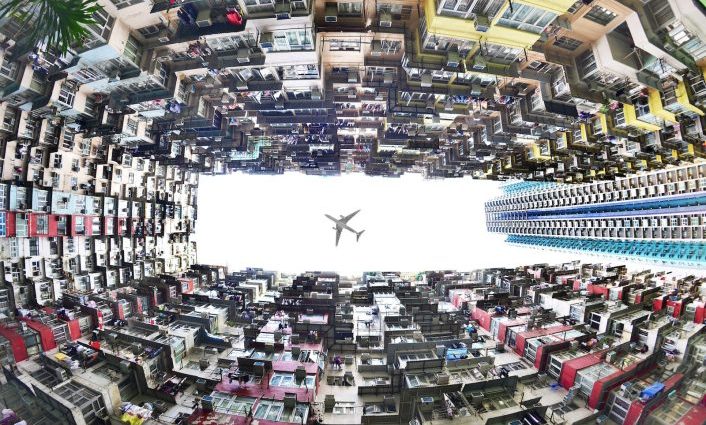Airbus and Toshiba will cooperate to develop superconducting technologies for future hydrogen-powered aircraft, a potential revolutionary collaboration to curb carbon emissions and improve efficiency while switching to a sustainable long-term fuel source.
Airbus UpNext, a wholly-owned subsidiary of France’s Airbus, and Japan’s Toshiba Energy Systems & Solutions Corporation, a division of the electronics conglomerate, will carry out the work as per a newly signed agreement.
Airbus UpNext’s says its mission is to identify, evaluate and develop potentially disruptive aerospace trends and concepts that could yield radical technological breakthroughs such as flying “at speeds well beyond what seems feasible today” or, in this case, a new and better approach to aerial propulsion.
Airbus UpNext says it aims “to further accelerate traditional research cycles, developing proof of concepts and completing both ground and flight testing with scale and speed.” Practically speaking, this likely means within two or three years.
Toshiba Energy Systems & Solutions Corporation is one of Japan’s leading suppliers of power generation and transmission equipment, and energy management technology.
Director Tsutomu Takeuchi says the company brings “expertise in superconducting technology for high current flow, motor drive technology for precise current control, and advanced rotating machinery technology for stable, high-speed operation” to the partnership.
The two sides signed the agreement last month at the Japan International Aerospace Exhibition 2024, which hosted more than 660 companies and other organizations at the Tokyo Big Sight exhibition center from October 16-19.
Airbus senior vice president Grzegorz Ombach, who heads the aerospace giant’s “Disruptive R&T” (Research and Technology) division, said, “Partnering with Toshiba presents a unique opportunity to push beyond the limitations of today’s partial superconducting and conventional electrical motors.”
Ombach and Takeuchi were joined by Kensuke Suzuki, executive in charge of new technology in the power systems division of Toshiba Energy Systems & Solutions Corporation, and Ludovic Ybanez, head of the Airbus Cryoprop demonstrator project.
Cryoprop was launched last May to accelerate the development of a two-megawatt superconducting electric propulsion system cooled by liquid hydrogen. The project seeks to confirm the potential of superconducting technologies for future aircraft applications in manufacturing, maintenance, operations and safety.
Any breakthrough would give Airbus the opportunity to accelerate the introduction of new products such as superconducting cables, motors, cryogenic power electronics and cryogenic cooling systems.
Toshiba, which has been conducting R&D on superconducting technology for nearly 50 years, announced a prototype two-megawatt superconductivity motor in June 2022. Its and Airbus’ projects have now converged.
The collaboration marks a hopeful start for the new Airbus Tech Hub Japan announced last May, which aims to create partnerships in Japan to promote research and innovation and build a next-generation aviation ecosystem. One of many established by Airbus, it will focus on aviation materials and automation as well as decarbonization.
The Tech Hub concept, supported by the governments of France and Japan, is more forward-looking and more likely to benefit Japan than the ill-fated Mitsubishi regional jet project, which was launched in 2007 and, after numerous delays, finally cancelled in 2023. It also marks another step for Japan away from reliance on America’s Boeing toward increased collaboration with Airbus.
Airbus is already working with Japanese aircraft and aircraft component makers Mitsubishi Heavy Industries, Kawasaki Heavy Industries and ShinMaywa, carbon fiber producers Toray and Teijin, and dozens of other Japanese companies.
On October 18, Airbus and Kawasaki Heavy Industries signed an MOU to study the feasibility of building hydrogen infrastructure at Kansai International Airport, Osaka International Airport and Kobe Airport.
A new addition to the Airbus Hydrogen Hub at Airports program, it is part of a roll-out of hydrogen infrastructure at airports in Europe, the Asia-Pacific and North America.
The Airbus hydrogen network already includes some 215 airports and associated energy suppliers, ground service companies and airlines – including All Nippon Airways (ANA). It is beginning to develop the scale that would make hydrogen-powered flight economical.
Airbus wants to introduce the world’s first hydrogen-powered commercial aircraft by 2035 and has developed four design concepts to that end. Three of them—turbofan, turboprop and blended wing-body turbofan—use hydrogen combustion gas turbines and modified fuel injectors similar to the technology currently in use. The fourth uses hydrogen fuel cells to power electric motors.
Airbus also has R&D teams working on cryogenic fuel systems and hydrogen fuel tanks. Hydrogen has an energy per unit mass three times greater than that of the jet fuel currently in use, but a lower energy density by volume. That means hydrogen fuel tanks will be bulkier than existing jet fuel tanks, and thus, future hydrogen-powered aircraft will look quite different from today’s airplanes.
US aerospace rival Boeing is skeptical of the hydrogen push. Speaking at the Farnborough International Airshow in July, Boeing chief technology officer Todd Citron said that hydrogen’s low energy density by volume and high flammability present a design problem and a serious safety risk. “Is it safe and certifiable?” he asked, adding, “That’s a really big question.”
His critical comment came after the April announcement of a Boeing R&T Center in Nagoya to focus on digital model-based engineering and manufacturing, composite materials, sustainable aviation fuel and the use of hydrogen fuel cells to power aircraft.
Like Airbus, Boeing has been working on hydrogen-powered flight for several years. However, faced with a net US$6.2 billion loss last quarter, a strike that has shut down most of its production and a discounted stock issue to save its bleeding balance sheet, management’s focus is now more on restructuring and survival than innovation.
Indeed, keeping pace with Airbus on hydrogen-powered aircraft does not appear to be a Boeing priority. With its Hydrogen Hub at Airports implementation program, Airbus is getting so far ahead in the field that Boeing may never catch up. For its part, Toshiba has seemingly chosen the right partner to commercialize its superconducting motor technology in aviation markets.
Follow this writer on X: @ScottFo83517667

